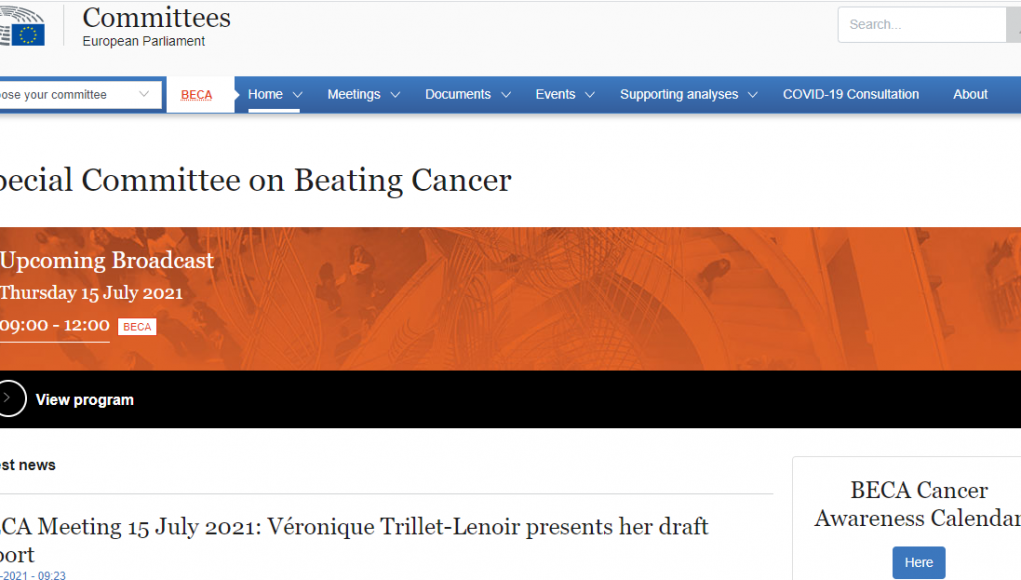The European Parliament’s Special Committee on Beating Cancer (BECA) was set up in September 2020 and is comprised of 63 MEPs, 33 full members and 30 substitutes. The aim of the committee is to examine actions the EU can take to tackle cancer proposing actions at every key stage of the disease: prevention, diagnosis, treatment, life as a cancer survivor and palliative care.
On the 3rd February 2021, the Commission published Europe’s Beating Cancer Plan with consultations on the Roadmap running from 4 Feb to 3 March 2020 and on the Report from 4 Feb to 21 May 2020.
The draft report on Beating Cancer was finally published on the 25th of June, and to the dismay of tobacco harm reduction experts, it failed to recognize the potential of vaping in the fight against smoking-induced cancer. At the time, the director of the World Vapers Association (WVA) Michael Landl highlighted that the document is an improvement on the European Commission’s draft, which leaves the door open for flavour bans and higher taxes, but by ignoring the potential of vaping products it still misses the mark
Earlier this month, a second and final consideration of amendments took place before a vote in Committee, which is scheduled for 6 December. In his opening statement BECA Chair, Bartosz Arłukowicz, announced that he believed there was general agreement for preventative measures such as food labelling and moderate alcohol consumption.
Biases towards the use of safer nicotine alternatives
Sadly however, he singled out e-cigarettes as being “more controversial,” and there was the mention of a recent visit to the WHO Headquarters by a number of BECA members. This would of course would have helped to cement any preconceived biases towards the use of safer nicotine alternatives as tobacco harm reduction tools.
A press release by ETHRA, highlighted that ultimately the need for compromise was the theme of the meeting, however certain proposed measures do not equate to compromise.
“Compromise was the word of the day during this BECA meeting. However, policymakers must understand that removing flavoured vapour products is not a compromise. What this would entail in real world terms is the removal of products that have helped millions of citizens quit smoking. So, what you are left with is a Cancer Plan that increases smoking and smoking related cancers. Ms Trillet-Lenoir deserves great credit for arguing logically and rationally for the recognition of harm reduction. We can only hope that common sense triumphs at the final vote in Committee on 6 December. If not, BECA’s aspirations to #BeatCancer are doomed to failure.”













